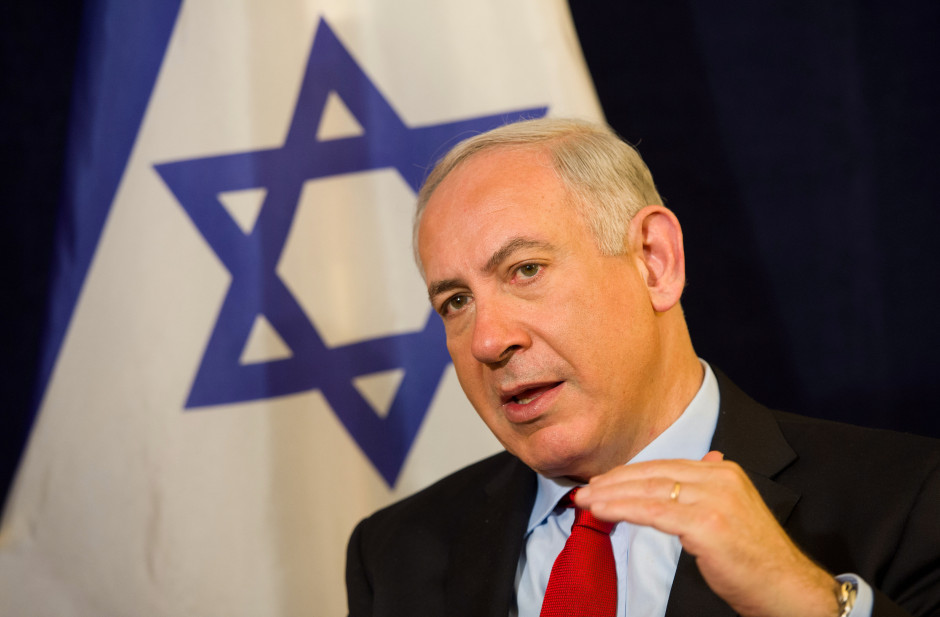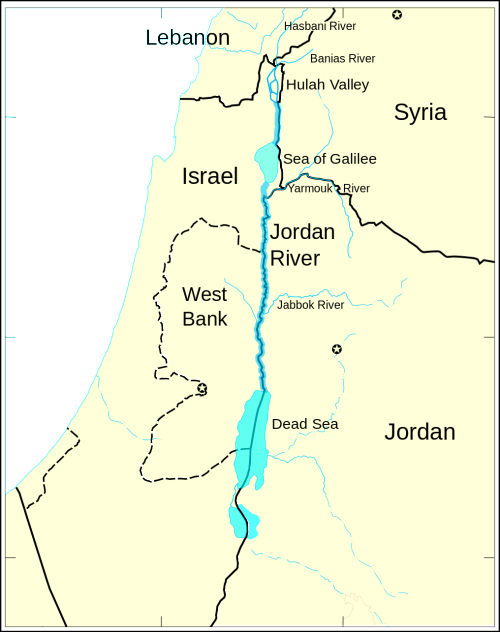On July 11, during the opening phase of Operation Protective Edge, Israel’s current cross-border war with Hamas, Israeli Prime Minister Benjamin Netanyahu finally came clean.
He cited the war as a prime example of why he will neither make significant territorial concessions in the West Bank nor allow the Palestinians to exercise full sovereignty within the framework of statehood.
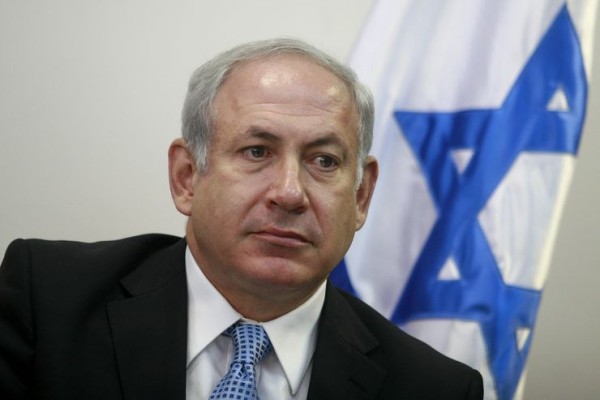
Allluding to the rocket bombardment Israel has endured since the start of the latest round of hostilities with Hamas, he said, “I think the Israeli people understand now what I always say: that there cannot be a situation, under any (peace) agreement, in which we relinquish security control of the territory west of the Jordan River.”
With reference to the West Bank in general and to the Jordan Valley in particular, he asserted that his right-wing government has no intention whatsoever of making the kind of painful territorial concessions that will be necessary to achieve an equitable peace accord with the Palestinian Authority.
Claiming that the current fighting validated his argument about the “huge importance” of retaining territory, Netanyahu observed, “At present, we have a problem with the territory called Gaza.” Noting that the West Bank is 20 times larger than the Gaza Strip, he said he would not countenance the creation of “20 Gazas” in the West Bank.
In passing, Netanyahu disclosed he had told U.S. Secretary of State John Kerry that only Israel can protect itself: “We live here. I live here. I know what we need to ensure the security of Israel’s people.”
Netanyahu presented a similar argument on June 30, before Israel and Hamas went to war for the third time in five years.
Referring to his 2009 Bar-Ilan University speech in which he agreed, in principle, to a demilitarized Palestinian state in the West Bank, Netanyahu said, “What does ‘demilitarized’ mean? Only Israel can be responsible for security in the entire West Bank, to make sure that terrorism is intercepted at the Jordan River and not on the outskirts of Tel Aviv.”
He added, “It must be clear that in every future agreement with the Palestinians, Israel will need to retain military control in the territory up to the Jordan River.”
No less a person than Dani Dayan, a spokesman of the Jewish settler movement in the West Bank, grasped the real meaning of Netanyahu’s observations. As he put it, “Netanyahu does not believe the creation of a Palestinian state is possible under the current circumstances.”
The truth at last.
Since 2009, Netanyahu has claimed that he supports a two-state solution, the only realistic basis for resolving Israel’s interminable conflict with the Palestinians. But his recent remarks belie his claims. At best, as skeptics have always maintained, he will go no farther than endorse a non-contiguous toy Palestinian state, an outcome that no self-respecting Palestinian leader could possibly possibly accept.
Certainly, Israel has genuine security concerns that should be addressed seriously. But that doesn’t mean that Israel’s eastern border must run along the Jordan River. U.S. troops, or a multinational force, could patrol the frontier and keep the peace, as the United States has suggested.
It’s not a flaky idea.
United Nations troops have been stationed on the Golan Heights since the mid-1970s and in southern Lebanon since the early 1980s. An international peacekeeping force has patrolled the Sinai Peninsula since Israel’s 1979 peace treaty with Egypt.
Netanyahu is also trying to create the illusion that Israel has no negotiating partner in the person of Mahmoud Abbas, the president of the Palestinian Authority, and that the mainstream Palestinian leadership is unwilling to make compromises for the sake of peace.
Netanyahu issued these misleading claims on May 23 in an interview with the news agency Bloomberg.

First, Abbas is the most moderate and reasonable Palestinian leader Israel has ever faced, as Israeli President Shimon Peres has repeatedly said. Second, the Palestinians have already compromised. A Palestinian state within the boundaries of the West Bank and Gaza would comprise only 22 percent of historic Palestine.
How much more land do the Palestinians have to relinquish to satisfy the arch nationalists in Netanyahu’s Likud party?
Netanyahu’s short-sighted policies do not fool the Americans.
On July 9, during the first hours of the Gaza war, Philip Gordon, a special assistant to President Barack Obama and the White House coordinator for the Middle East, was in Israel. In an unusually frank speech, Gordon made a few telling points.
Israel should not miss the opportunity to negotiate a peace treaty with Abbas, who has proven to be a reliable partner. Abbas, he noted, is committed to non-violence and co-existence and cooperation with Israel.
Israel’s occupation of the West Bank is untenable. “Israel confronts an undeniable reality. It cannot maintain military control of another people indefinitely. Doing so is not only wrong but a recipe for resentment and recurring instability. It will embolden extremists on both sides, tear at Israel’s democratic fabric and feed mutual dehumanization.”
The final borders between Israel and Palestine, he said, should be based on the 1967 armistice lines, with mutually agreed land swaps.
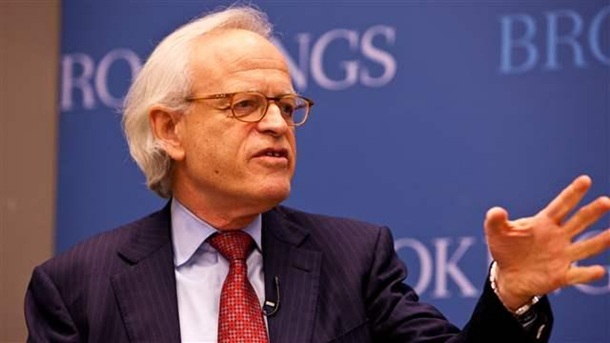
Martin Indyk, who played an integral role in Washington’s failed attempt to broker a peace agreement between Israel and the Palestinian Authority, delivered a critique of Israeli policy two months ago.
“The expansion of settlements on land that the Palestinians believe is supposed to be part of their state and the prevention of their ability to build on the same land is a very problematic situation in the resolution of this conflict,” said Indyk, who resigned from his position on June 27.
Israel’s settlement movement in the West Bank, he warned, “may well drive Israel into an irreversible binational reality.”
Shortly after the collapse of the peace talks in April, one U.S. official who preferred to remain anonymous told the Israeli daily Yedioth Ahronoth, “There are a lot of reasons for the peace effort’s failure, but people in Israel shouldn’t ignore the bitter truth — the primary sabotage came from the settlements.”
Throughout the nine months of talks overseen by Kerry and Indyk, Israel continued to expand settlements in the West Bank and build more housing units in Jewish neighborhoods on land in eastern Jerusalem annexed by Israel in 1967.
In April, soon after Fatah and Hamas announced they had reached a reconciliation agreement, Israeli Housing Minister Uri Ariel, a leader of the West Bank settler movement, published bids for the construction of almost 1,500 apartment flats in the West Bank and East Jerusalem. Ariel called it “an appropriate Zionist response to the establishment of the Palestinian terror government.”
Marie Harf, a U.S. State Department spokeswoman, described the announcement as “counter-productive to achieving a two-state outcome.”

In an amazing admission, Tzipi Livni, Israel’s chief negotiator at the peace talks, basically agreed with Harf: “Settlement construction hurts Israel, it hurts the Palestinians, and it hurts the negotiations.” And in a startling accusation, Livni said, “There are people in the (Israeli) government who don’t want peace.”
She was referring to Ariel and Economics and Trade Minister Naftali Bennett. “On the political level,” she charged, “they are the ones who (sabotaged) an agreement.”
Israel’s settlement policies are, in a word, reckless.
Ask Amos Yadlin, the former chief of Israeli military intelligence. He has said that the status quo is not an alternative on which Israel can or should depend.
“If managed unwisely,” he pointed out, the status quo will harm Israel in the long run, causing delegitimization, boycotts, economic woes and, eventually, a one-state solution that would spell finis to Israel’s Jewish and democratic character.
Netanyahu himself, about a year ago, explained that the purpose of a peace agreement with the Palestinians would be to prevent the emergence of a binational state in Israel and to guarantee Israel’s stability and security. But his settlement policies, taken together with his most recent remarks on the need for Israel to maintain a military presence in much of the West Bank, particularly the Jordan Valley, contradict his endorsement of a two-state solution.
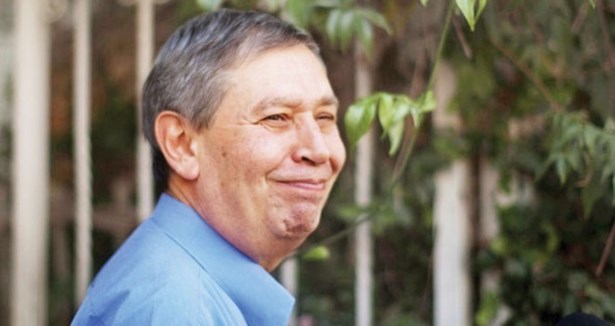
In recent years, Netanyahu has portrayed Iran’s nuclear program as the most dire threat to Israel’s existence. But according to Tamir Pardo, the director of the Mossad, Israel’s external spy agency, the unresolved conflict with the Palestinians is the simmering, sometimes explosive threat that should really concern Israelis.
Yuval Diskin, the former director of the Shin Bet, Israel’s domestic intelligence agency, concurs with Pardo’s assessment. The conflict with the Palestinians, he said, poses more of an existential danger to Israel than Iran.
Is Netanyahu listening to these home truths? It’s highly doubtful.
